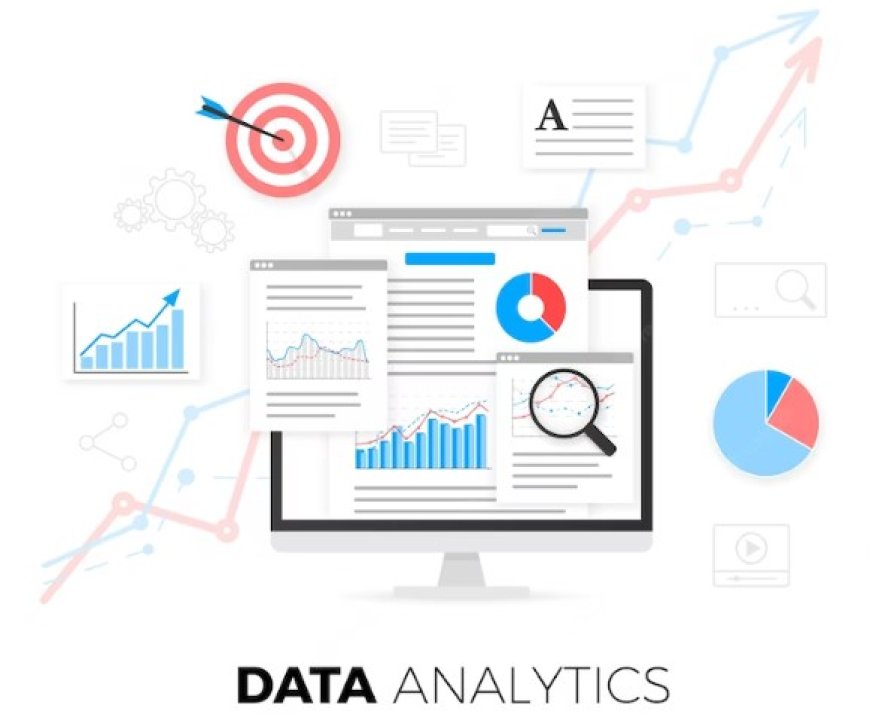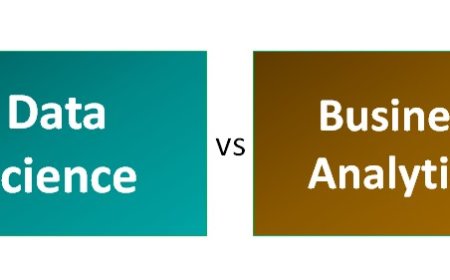The future of big data analytics
Unlocking insights & driving innovation with big data analytics. Explore the future of data-driven decision making & business growth.

The future of big data analytics is a topic that has captivated the minds of industry experts and enthusiasts alike. With the exponential growth of data, the advancements in technology, and the increasing demand for data-driven insights, big data analytics is poised to shape the future of businesses and society as a whole. In this blog, we will delve into the exciting world of big data analytics, explore its potential, and discuss the key trends and developments that will shape its future.
Welcome to the future of big data analytics! In this blog, we will embark on a journey to uncover the limitless possibilities and potential that big data analytics holds. We will explore the transformative impact of big data analytics on businesses and industries, and discuss the key trends and advancements that will shape its future. So, fasten your seatbelts and get ready for an exhilarating ride into the future of big data analytics!
The Importance of Big Data Analytics
Big data analytics has emerged as a game-changer for businesses across all sectors. By harnessing the power of large and diverse datasets, organizations can gain valuable insights, make data-driven decisions, and unlock new opportunities. Big data analytics enables businesses to understand customer behavior, optimize operations, detect patterns and anomalies, and develop predictive models. It empowers organizations to stay competitive, innovate, and drive growth in a rapidly evolving marketplace.
Key Trends in Big Data Analytics
The future of big data analytics is shaped by several key trends and developments. These include the rise of machine learning and artificial intelligence, the adoption of real-time analytics, the emergence of edge computing, and the increasing focus on data privacy and security. Machine learning and AI algorithms are enhancing the capabilities of big data analytics, enabling more accurate predictions and automated decision-making. Real-time analytics enables organizations to analyze data as it is generated, allowing for immediate insights and faster response times. Edge computing brings data processing closer to the source, reducing latency and enabling faster data analysis. Data privacy and security are also gaining prominence, with stricter regulations and increased focus on ethical data handling.
Advancements in Big Data Technologies
The future of big data analytics is driven by advancements in technology. Cloud computing, distributed computing frameworks, and scalable storage solutions are revolutionizing how organizations handle and analyze large volumes of data. Cloud platforms provide the flexibility and scalability needed to store and process vast amounts of data, while distributed computing frameworks like Apache Hadoop and Apache Spark enable efficient data processing across clusters of machines. Additionally, advancements in data integration and data management tools are simplifying the process of collecting, cleaning, and transforming data for analysis.
The Future Applications of Big Data Analytics
Big data analytics will continue to find applications in various industries and domains. Healthcare, for example, can benefit from predictive analytics to identify disease patterns, optimize treatment plans, and improve patient outcomes. Retail can leverage big data analytics to personalize customer experiences, optimize pricing strategies, and detect fraud. Smart cities can use big data analytics to improve transportation systems, enhance energy efficiency, and ensure public safety. The possibilities are endless, and as big data analytics matures, its applications will become more diverse and innovative.
Overcoming Challenges and Ethical Considerations
The future of big data analytics also brings forth challenges and ethical considerations. As the volume and variety of data grow, organizations must address issues of data quality, data governance, and data privacy. It is crucial to ensure that data is collected and analyzed ethically, with a focus on transparency, consent, and fairness. Organizations must also invest in robust security measures to protect data from breaches and unauthorized access. Additionally, the shortage of skilled data scientists and analysts poses a challenge that needs to be addressed through education and training initiatives.
Embracing a Data-Driven Future
As we look ahead to the future of big data analytics, it becomes evident that organizations must embrace a data-driven culture. The ability to harness the power of data and derive meaningful insights will be a critical factor in determining success in the digital era. Companies that prioritize data-driven decision-making will have a competitive edge, as they can make informed choices, identify trends, and seize opportunities faster than their counterparts.
To embrace a data-driven future, organizations need to invest in building a robust data infrastructure. This includes implementing scalable storage solutions, leveraging cloud computing platforms, and utilizing advanced analytics tools. By capturing and storing relevant data, organizations can gain a comprehensive understanding of their operations, customers, and market dynamics.
However, it's important to note that with great power comes great responsibility. As big data analytics becomes more pervasive, organizations must prioritize ethical considerations. They need to ensure transparency in data collection and usage, respect privacy rights, and mitigate biases in algorithms. Organizations should establish robust data governance frameworks and adhere to industry regulations to protect the rights and interests of individuals.
The Role of Collaboration and Innovation
The future of big data analytics is not just about technology—it's also about collaboration and innovation. Collaboration between data scientists, domain experts, and business stakeholders is essential for extracting meaningful insights from data. By fostering interdisciplinary collaboration, organizations can gain a holistic understanding of their data and uncover hidden patterns and opportunities.
Furthermore, innovation plays a crucial role in advancing big data analytics. As technology evolves, new algorithms, methodologies, and tools will emerge, enabling more sophisticated analysis and predictive capabilities. Organizations should encourage a culture of innovation, invest in research and development, and stay abreast of the latest advancements in the field. By embracing innovation, organizations can stay ahead of the curve and leverage cutting-edge techniques to derive actionable insights from their data.
From the above understanding, The future of big data analytics is poised to revolutionize industries and reshape the way organizations operate. As technology continues to advance and the volume of data generated increases exponentially, the potential for leveraging big data analytics grows even larger. With the ability to extract valuable insights, make data-driven decisions, and identify emerging trends, organizations can gain a competitive advantage and drive innovation.
However, as big data analytics progresses, it is crucial to address ethical considerations, ensuring transparency, privacy, and fairness in data collection and usage. Organizations must also prioritize collaboration and interdisciplinary approaches to unlock the full potential of data. By fostering a culture of innovation and embracing emerging technologies, such as artificial intelligence and machine learning, organizations can explore new frontiers and uncover deeper insights from their data.





























































